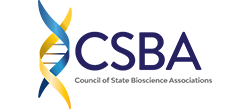Addressing Multiple Strains of Ebolavirus
Atlanta, GA, July 24, 2023 – GeoVax Labs, Inc. (Nasdaq: GOVX), a biotechnology company developing immunotherapies and vaccines against cancers and infectious diseases, today announced that the U.S. Patent and Trademark Office has issued Patent No. 11,701,418 B2 to GeoVax, pursuant to the Company’s patent application No. 15/543,139 titled “ Replication-Deficient Modified Vaccinia Ankara (MVA) and Matrix Protein (VP40).”

The claims granted by the patent generally cover GeoVax’s vector platform for expressing ebolavirus antigens in virus-like particles (VLPs) utilizing an MVA viral vector. The claims encompass multiple ebolavirus strains, including Sudan ebolavirus, Zaire ebolavirus, Taï Forest ebolavirus, and Reston ebolavirus.
GeoVax previously demonstrated that a single intramuscular (IM) dose of its vaccine candidate, GEO-EM01, provided 100% protection in rhesus macaques challenged with a lethal dose of Zaire ebolavirus (EBOV). GEO-EM01 is based on the Company’s novel MVA-VLP platform, which generates noninfectious VLPs in the individual being vaccinated. VLPs mimic a natural infection, triggering the body to produce a robust and durable immune response with both antibodies and T cells.
Additionally, in July 2021, the Company announced results of preclinical efficacy studies of its Sudan ebolavirus (SUDV) vaccine candidate, in which a single dose of the vaccine protected 100% of small animals challenged with a lethal dose of SUDV. Dr. Jason Comer of Sealy Institute for Vaccine Sciences, University of Texas Medical Branch (UTMB), recently discussed GeoVax’s Sudan virus vaccine efficacy. His presentation to the Global Health Preparedness Strategy and Priority Pathogens session at the 23 rd Annual World Vaccine Congress demonstrated partial protection following lethal Sudan virus challenge in a rigorous cynomolgus macaque model. This research project has been funded in whole or in part with Federal funds under a Preclinical Services Contract from the National Institute of Allergy and Infectious Diseases, part of the National Institutes of Health.
David Dodd, GeoVax President and CEO, commented, “While our focus and development priorities continue to be our COVID-19 vaccine and cancer immunotherapy programs, developing vaccines against lethal hemorrhagic fever viruses, represents our commitment to addressing highly fatal endemic threats throughout the world, as well as our support of critically important biodefense initiatives. This patent allowance adds to our growing portfolio of wholly owned, co-owned, and in-licensed intellectual property, now standing at over 115 granted or pending patent applications spread over 24 patent families.”
GeoVax Labs, Inc. is a clinical-stage biotechnology company developing novel therapies and vaccines for solid tumor cancers and many of the world’s most threatening infectious diseases. The company’s lead program in oncology is a novel oncolytic solid tumor gene-directed therapy, Gedeptin ® , presently in a multicenter Phase 1/2 clinical trial for advanced head and neck cancers. GeoVax’s lead infectious disease candidate is GEO-CM04S1, a next-generation COVID-19 vaccine targeting high-risk immunocompromised patient populations. Currently in three Phase 2 clinical trials, GEO-CM04S1 is being evaluated as a primary vaccine for immunocompromised patients such as those suffering from hematologic cancers and other patient populations for whom the current authorized COVID-19 vaccines are insufficient, and as a booster vaccine in patients with chronic lymphocytic leukemia (CLL). In addition, GEO-CM04S1 is in a Phase 2 clinical trial evaluating the vaccine as a more robust, durable COVID-19 booster among healthy patients who previously received the mRNA vaccines. GeoVax has a leadership team who have driven significant value creation across multiple life science companies over the past several decades. For more information, visit our website: www.geovax.com.
Forward-Looking Statements
This release contains forward-looking statements regarding GeoVax’s business plans. The words “believe,” “look forward to,” “may,” “estimate,” “continue,” “anticipate,” “intend,” “should,” “plan,” “could,” “target,” “potential,” “is likely,” “will,” “expect” and similar expressions, as they relate to us, are intended to identify forward-looking statements. We have based these forward-looking statements largely on our current expectations and projections about future events and financial trends that we believe may affect our financial condition, results of operations, business strategy and financial needs. Actual results may differ materially from those included in these statements due to a variety of factors, including whether: GeoVax is able to obtain acceptable results from ongoing or future clinical trials of its investigational products, GeoVax’s immuno-oncology products and preventative vaccines can provoke the desired responses, and those products or vaccines can be used effectively, GeoVax’s viral vector technology adequately amplifies immune responses to cancer antigens, GeoVax can develop and manufacture its immuno-oncology products and preventative vaccines with the desired characteristics in a timely manner, GeoVax’s immuno-oncology products and preventative vaccines will be safe for human use, GeoVax’s vaccines will effectively prevent targeted infections in humans, GeoVax’s immuno-oncology products and preventative vaccines will receive regulatory approvals necessary to be licensed and marketed, GeoVax raises required capital to complete development, there is development of competitive products that may be more effective or easier to use than GeoVax’s products, GeoVax will be able to enter into favorable manufacturing and distribution agreements, and other factors, over which GeoVax has no control.
Further information on our risk factors is contained in our periodic reports on Form 10-Q and Form 10-K that we have filed and will file with the SEC. Any forward-looking statement made by us herein speaks only as of the date on which it is made. Factors or events that could cause our actual results to differ may emerge from time to time, and it is not possible for us to predict all of them. We undertake no obligation to publicly update any forward-looking statement, whether as a result of new information, future developments or otherwise, except as may be required by law.
Investor Relations Contact:
Rich Cockrell
CG Capital
404-736-3838
Media Contact:
Susan Roberts
202-779-0929

P: 404.221.0617
Fax: 404.448.3982
Email: admin@galifesciences.org
Address: 8607 Roberts Drive, Suite 250, Atlanta, GA 30350


